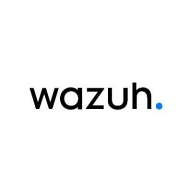


Microsoft Defender XDR and Wazuh compete in the comprehensive threat protection and security integration market. Microsoft Defender XDR has the upper hand due to its full integration with Microsoft tools and strong threat detection capabilities.
Features: Microsoft Defender XDR offers seamless integration with other Microsoft security products, strong threat detection, and real-time alerts, enabling comprehensive threat protection. Wazuh is appreciated for its flexibility and diverse environment integration, file integrity monitoring, intrusion detection, and vulnerability assessment, benefiting from its open-source nature.
Room for Improvement: Microsoft Defender XDR could improve its licensing clarity, multi-tenant management, and user interface complexity, while also having better integration with non-Microsoft solutions. Wazuh lacks built-in threat intelligence and could enhance scalability, real-time monitoring for Unix, and rule configuration simplicity.
Ease of Deployment and Customer Service: Microsoft Defender XDR is often deployed in public cloud environments with structured technical support, though initial responsiveness varies. Wazuh is favored in on-premises and hybrid environments for its flexibility and community support but often requires in-house expertise or third-party support.
Pricing and ROI: Microsoft Defender XDR requires a substantial investment, integrated into the broader E5 licensing, offering cost-effectiveness for Microsoft Suite users but may be expensive for smaller businesses. Wazuh, being free, provides cost savings, although customization time and management increase the total cost of ownership.
They appreciate the rich telemetry data from the solution, as it provides in-depth threat identification.
Cortex XDR by Palo Alto Networks helps to reduce my total cost of ownership significantly.
I have seen a return on investment with Cortex XDR by Palo Alto Networks, as this product is offered at a minimal cost, and we can find a good ROI from it.
We can quarantine and isolate a device within minutes.
Microsoft Defender XDR has saved me at least 50% of my time.
It helped stop multiple intrusion points where we would have had millions in lost revenue if the attackers got in.
I have seen value in security cost savings with Wazuh, as using proprietary EDR versions could save us substantial money.
The technical support from Palo Alto deserves a mark of ten because they reach out within an hour whenever assistance is needed.
There is no back and forth, and they know what we are asking for and come up with the best resolution for a solution.
If any of these services are missed, it becomes a problem in terms of support tickets, follow-up, or special configuration that needs to be done in the system.
You get stuck in low-level support for way longer than you should, instead of them escalating the issue up the chain.
It's critical to escalate SEV B issues immediately to a domestic engineer.
Once issues are escalated to the second or third layer, the support is much better.
They responded quickly, which was crucial as I was on a time constraint.
We use the open-source version of Wazuh, which does not provide paid support.
The documentation is good and provides clear instructions, though it's targeted at those with technical backgrounds.
Cortex XDR by Palo Alto Networks can be expanded anytime by purchasing another license without any issues related to scalability.
I think scalability for Cortex XDR by Palo Alto Networks is good.
My concern is about the scale of events and alerts being generated, and the product is doing a very good job of only surfacing the important items for us.
Microsoft Defender XDR shows tremendous scalability, much more so than on-premises solutions.
Microsoft Defender XDR scales pretty well.
It can accommodate thousands of endpoints on one instance, and multiple instances can run for different clients.
Currently, I don't see any limitations in terms of scalability as Wazuh can still connect many endpoints.
Scalability depends on the configuration and the infrastructure resources like compute and memory we allocate.
Cortex remains fast and responsive, even with increasing data and alerts.
The thresholds we've seen on our firewall boxes at some instances reached 80% to 85%, but even at that level of utilization, we don't observe any latency or any issues reported with respect to accessing the application.
Cortex XDR is stable, offering high quality and reliable performance.
The service has remained consistently online, with any issues isolated to specific components, suggesting a well-designed and modular architecture.
The services within our ecosystem have been reliable, meeting their SLAs.
It provides high-fidelity signals.
The stability of Wazuh is strong, with no issues stemming from the solution itself.
The stability of Wazuh is largely dependent on maintenance.
The indexer frequently times out, requiring system restarts.
Improving reporting and dashboard customization, along with the addition of real-time and exportable reports, would help SOC teams greatly.
The inclusion of this feature would allow the application of DLP policies alongside antivirus policies via a single agent and console, making it more competitive as other OEMs often offer DLP solutions as part of their antivirus products.
If the per GB data could be provided at a certain level free of cost or at the same cost which the customer is taking for the entire bundle, that would be better.
The licensing process needs improvement and clarification.
Improvements are needed in automated response capabilities.
Some inconsistencies exist between blades, which could be improved for a more seamless user and UI experience.
Machine learning is needed along with understanding user behavior and behavioral patterns.
The integration modules are insufficiently developed, necessitating the creation of custom integration solutions using tools like Logstash and PubSub.
I think Wazuh should improve by introducing AI functionalities, as it would be beneficial to see AI incorporated in the threat hunting and detection functionalities.
The pricing on SentinelOne is far more reasonable and cheaper than Cortex XDR by Palo Alto Networks.
I would say it is definitely not a cheap product, considering how mature it is and how scalable all Palo Alto products are together.
Cortex XDR is perceived as expensive by some customers, yet offers dynamic pricing.
There are certainly savings when using Microsoft Defender XDR, which can range from 30%, 40%, and even up to 50%.
I would rate the pricing as eight out of ten, indicating it is a reasonable cost for the product.
Microsoft purposefully obfuscates this through marketing ploys to hide costs.
Wazuh is completely free of charge.
I would definitely recommend Wazuh, especially considering Fortinet's licensing model which is confusing and overpriced in my opinion.
Totaling around two lakh Indian rupees per month.
It incorporates AI for normal behavior detection, distinguishing unusual operations.
The product provides automation responses in case of a threat attack, severity assessments, centralized manageability, and comprehensive compliance features, resulting in reduced costs.
It includes machine learning to easily analyze data and detect complex threats across endpoints, networks, or clouds.
With Microsoft threat intelligence information, it detects various types of threats, including insider attacks, malicious content, and data exfiltration.
This allows us to secure our systems in advance and proactively improve security, rather than waiting for incidents to occur.
Once we have it on the security dashboard, we can see a real-time storyline.
Wazuh is a SIEM tool that is highly customizable and versatile.
The system allows us to monitor endpoints effectively and collect security data that can be utilized across other platforms such as SOAR.
With this open source tool, organizations can establish their own customized setup.
| Product | Market Share (%) |
|---|---|
| Microsoft Defender XDR | 4.8% |
| Wazuh | 7.2% |
| Cortex XDR by Palo Alto Networks | 4.8% |
| Other | 83.2% |

| Company Size | Count |
|---|---|
| Small Business | 42 |
| Midsize Enterprise | 21 |
| Large Enterprise | 47 |
| Company Size | Count |
|---|---|
| Small Business | 47 |
| Midsize Enterprise | 25 |
| Large Enterprise | 38 |
| Company Size | Count |
|---|---|
| Small Business | 27 |
| Midsize Enterprise | 15 |
| Large Enterprise | 8 |
Cortex XDR by Palo Alto Networks provides advanced threat detection with AI-driven endpoint protection and seamless integration, ensuring multi-layered security and automatic threat response.
Cortex XDR is designed to safeguard endpoints against malware and suspicious activities. It offers advanced threat detection and response capabilities using behavioral analysis, AI, and machine learning. It seamlessly integrates with security infrastructures, providing endpoint security, firewall integration, and enhanced visibility in both cloud-based and on-premises environments.
What are the key features of Cortex XDR?Organizations in diverse sectors deploy Cortex XDR to protect against malware, leveraging its advanced threat detection capabilities. Its integration with existing security infrastructures appeals to those seeking comprehensive protection in both cloud and on-premises environments, providing enhanced visibility and threat intelligence.
Microsoft Defender XDR is a comprehensive security solution designed to protect against threats in the Microsoft 365 environment.
It offers robust security measures, comprehensive threat detection capabilities, and an efficient incident response system. With seamless integration with other Microsoft products and a user-friendly interface, it simplifies security management tasks.
Users have found it effective in detecting and preventing various types of attacks, such as phishing attempts, malware infections, and data breaches.
Watch the Microsoft demo video here: Microsoft Defender XDR demo video.
Wazuh offers an open-source platform designed for seamless integration into diverse environments, making it ideal for enhancing security infrastructure. Its features include log monitoring, compliance support, and real-time threat detection, providing effective cybersecurity management.
Wazuh stands out for its ability to integrate easily with Kubernetes, cloud-native infrastructures, and various SIEM platforms like ELK. It features robust MITRE ATT&CK correlation, comprehensive log monitoring capabilities, and detailed reporting dashboards. Users benefit from its file integrity monitoring and endpoint detection and response (EDR) capabilities, which streamline compliance and vulnerability assessments. While appreciated for its customization and easy deployment, room for improvement exists in scalability, particularly in the free version, and in areas such as threat intelligence integration, cloud integration, and container security. The platform is acknowledged for its strong documentation and technical support.
What are the key features of Wazuh?In industries like finance, healthcare, and technology, Wazuh is utilized for its capabilities in log aggregation, threat detection, and vulnerability management. Companies often implement its features to ensure compliance with stringent regulations and to enhance security practices across cloud environments. By leveraging its integration capabilities, organizations can achieve unified security management, ensuring comprehensive protection of their digital assets.
We monitor all Extended Detection and Response (XDR) reviews to prevent fraudulent reviews and keep review quality high. We do not post reviews by company employees or direct competitors. We validate each review for authenticity via cross-reference with LinkedIn, and personal follow-up with the reviewer when necessary.